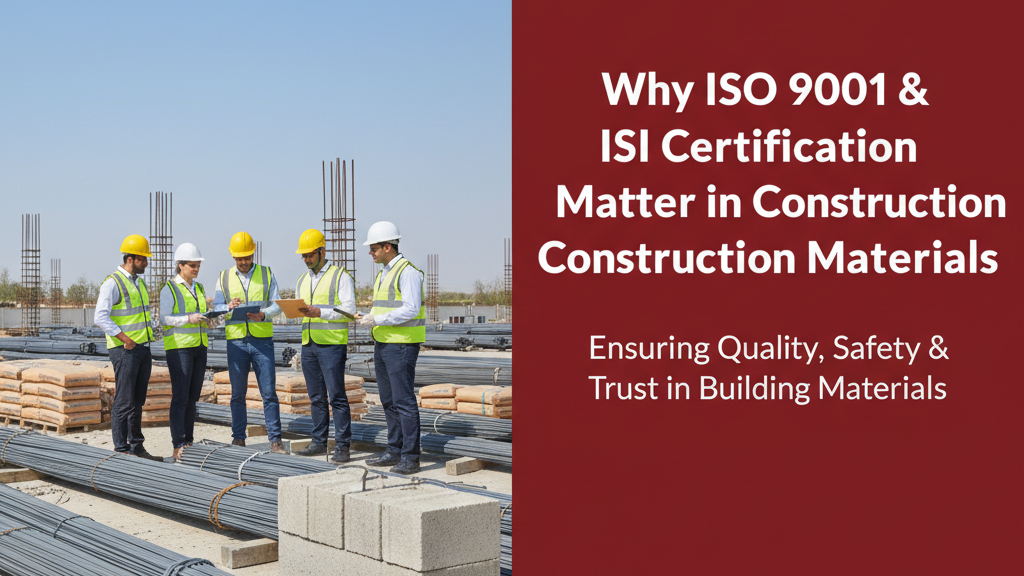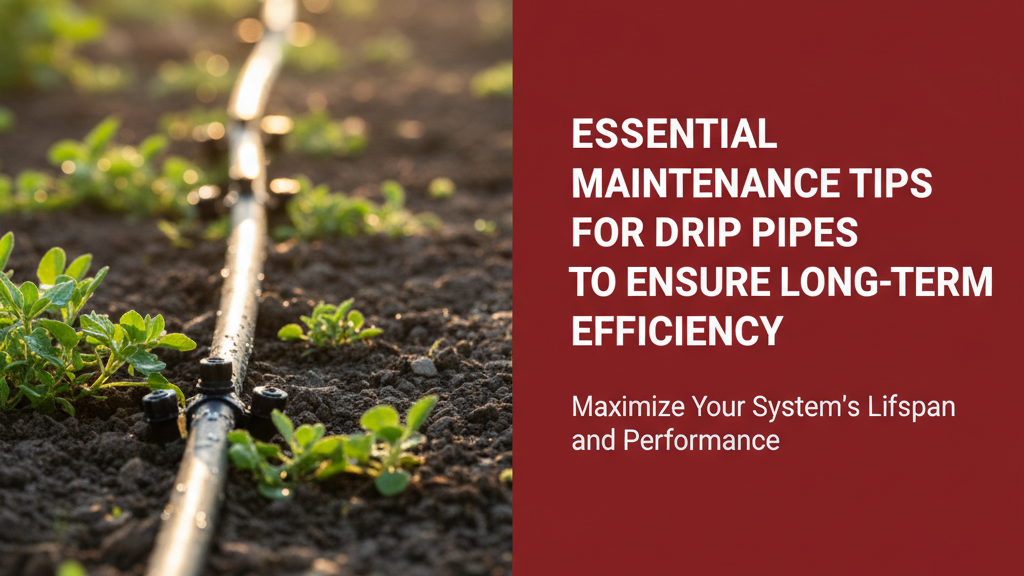Introduction to ISO 9001 and ISI Certification
When selecting construction materials, certifications like ISO 9001 and ISI marks offer more than just badges—they’re assurances of systematic quality control and compliance with national standards. In India’s construction sector, where material durability directly impacts project longevity, these certifications help professionals distinguish reliable manufacturers from unverified suppliers.
The Role of ISO 9001 in Construction Materials
ISO 9001 is an internationally recognised quality management standard that ensures manufacturers follow consistent processes for:
- Material Traceability: Batch-wise documentation from raw materials to finished products
- Process Control: Standardised manufacturing with documented checks at each stage
- Performance Validation: Regular testing against declared specifications
For products like HDPE pipes or uPVC windows, this means fewer variations in wall thickness, joint integrity, or thermal stability—critical factors affecting installation quality.
Understanding ISI Certification: What It Means for Quality
The ISI mark (Indian Standards Institution, now BIS) indicates compliance with specific material standards:
| Material | Relevant IS Standard | Key Parameters Checked |
|---|---|---|
| uPVC Pipes | IS 4985 | Pressure rating, impact resistance, dimensional accuracy |
| HDPE Pipes | IS 4984 | Hydrostatic strength, oxidation stability, bend radius |
| Water Storage Tanks | IS 12701 | Structural strength, UV resistance, water quality retention |
Unlike generic quality claims, ISI certification requires annual factory audits and random market sampling by BIS.
Benefits of ISO 9001 and ISI Certification in Construction
Certified materials provide measurable advantages:
- Reduced Failure Risks: ISI-marked uPVC pipes show 40-60% fewer joint leaks in pressure applications compared to uncertified alternatives
- Longevity Assurance: ISO-manufactured HDPE pipes maintain >90% of initial burst pressure after 25 years in typical Indian soil conditions
- Regulatory Compliance: Mandatory for government projects and simplifies approval processes
How Certifications Enhance Material Reliability
Certification-backed quality control addresses common construction headaches:
- Consistent Dimensions: ISI-certified pipes guarantee ±1% variation in diameter—critical for solvent weld joints
- Weather Resistance: Certified uPVC formulations retain impact strength up to 45°C, preventing monsoon season brittleness
- Safety Margins: ISI water tanks are pressure-tested to 1.5x working capacity
The Impact on Project Safety and Compliance
Non-certified materials pose hidden risks:
- Substandard wall putty may contain asbestos fibres (>1% by weight breaches Indian safety codes)
- Unmarked HDPE pipes often use recycled resin with compromised stress crack resistance
Certifications provide documentary evidence for liability protection—important for architects and contractors.
Choosing Certified Materials: A Guide for Contractors
Practical verification steps:
- Check for embossed ISI marks (not stickered) on products
- Verify license numbers on the BIS website
- Request test certificates for batch-specific properties
Note: Some manufacturers hold ISO 9001 certification without BIS marks—always prioritise ISI marks where mandated by Indian law (e.g., pipes carrying drinking water).
Conclusion: Building a Future with Certified Construction Materials
As Indian construction evolves towards stricter quality norms, ISO 9001 and ISI certifications serve as vital filters—helping professionals mitigate risks while delivering structures capable of withstanding local environmental challenges. The marginal cost premium translates into long-term savings through reduced replacements and maintenance.



